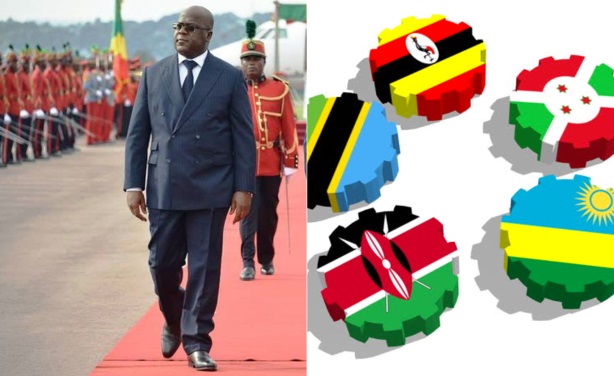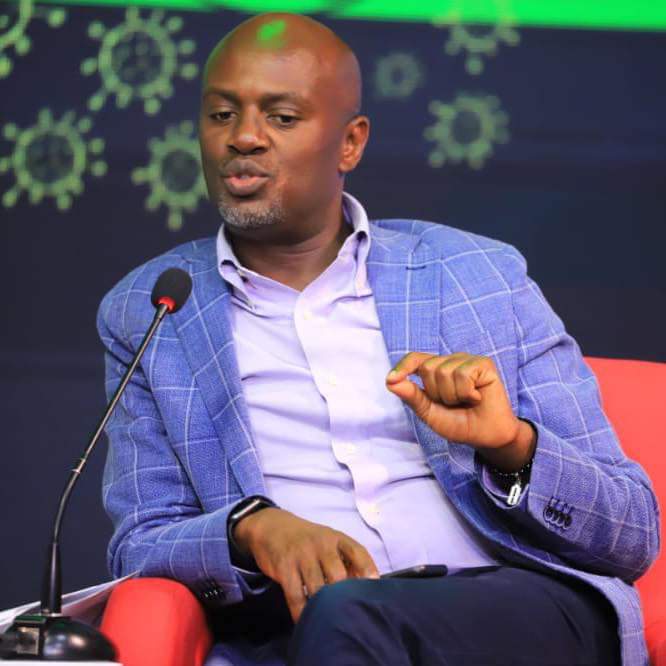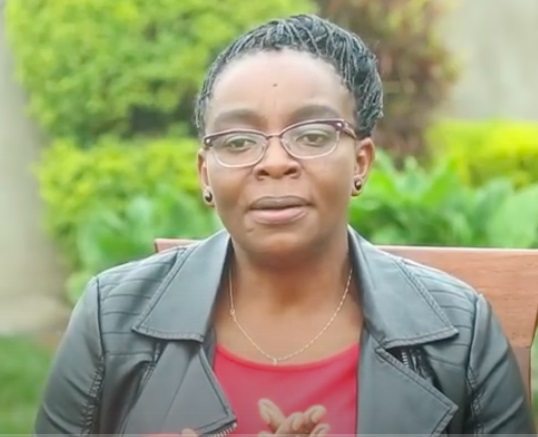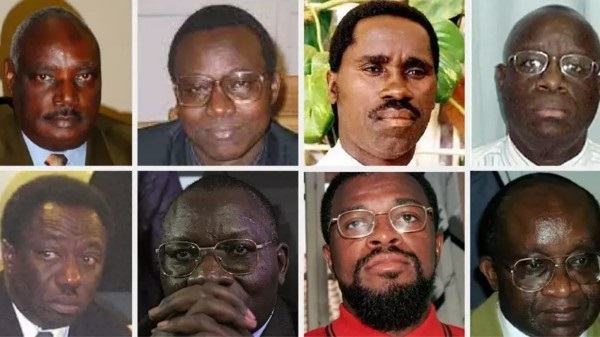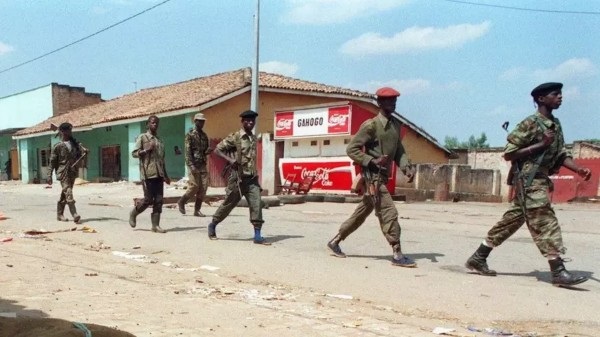Regional
Genocidaires ordered out of Niger: Who are they?
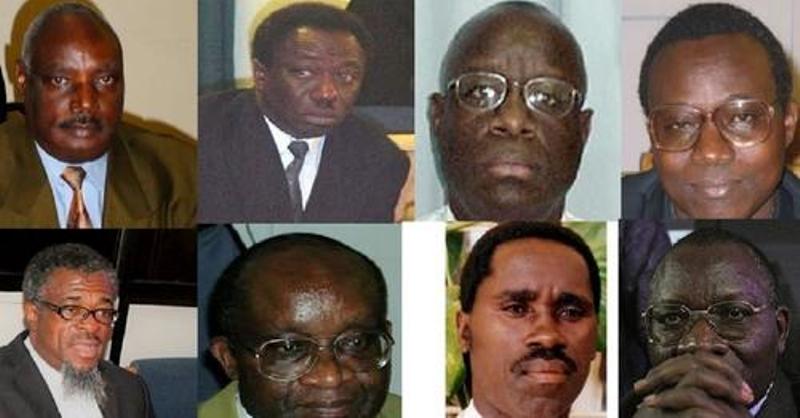
According to a statement released on December 27,
2021, the government of Niger ordered eight Rwandan men earlier convicted for
involvement in the 1994 Genocide against Tutsi but had completed their
sentences or were acquitted, to leave the country within seven days.
The ex-convicts who are among the masterminds of the
1994 Genocide are Protais Zigiranyirazo, Francois Nzuwonemeye, Innocent
Sagahutu, Alphonse Nteziryayo, Tharcisse Muvunyi, André Ntagerura, Anatole
Nsengiyumva and Prosper Mugiraneza.
After the conclusion of their cases, they remained
in Arusha, Tanzania where the UN court is based, until recently when they were flown
out – seemingly clandestinely – to Niger.
The order for their expulsion from Niger came after
Rwanda asked the UN Mechanism for International Criminal Tribunals (MICT) to clarify
circumstances under which the eight were earlier transferred to Niger.
While addressing a Security Council meeting in New York,
last December, Amb. Valentine Rugwabiza, Rwanda’s top envoy to the UN, said
that Kigali was not informed by either the MICT or the host country about the
transfer of the men in question.
The Rwandan diplomat said there is evidence indicating
that some of the men, after their acquittal by the former ICTR, were engaging
in subversive activities that contributed to the insecurity and instability of
the Great Lakes Region for the past decades. So who are these men?
Anatole Nsengiyumva
He
was born in former Satinsyi commune in former Gisenyi prefecture. During the 1994
genocide against the Tutsi, Lt. Col. Anatole Nsengiyumva was the commander of the
genocidal government’s army in Gisenyi. He was the principal architect and perpetrator
of genocide in Gisenyi from April 7, 1994.
Nsengiyumva
was accused of being the lead killer in the death of Alphonse Kabiligi, as well as for massacres of the Tutsi at
Mudende University, Nyundo Parish, and of more than 50,000 Tutsi in Bisesero.
Since 1990, he was a member of the very powerful President Juvenal Habyarimana’s
‘Akazu’ clique which prepared and orchestrated the genocide.
Before being FAR commander in Gisenyi, he oversaw the office of military intelligence. Immediately after the death of Habyarimana, he ordered Richard Mugenzi who was spying on the RPF Inkotanyi to release a message that Habyarimana’s plane was downed by RPA fighters. This was a ploy to blame the Tutsi for assassinating the president and thus encourage the genocide.
On the morning of April 7, 1994, Nsengiyumva
presided over a meeting in Gisenyi prefecture, during which he ordered
participants to organize the killing of civilians. During the months of April
through June 1994, Nsengiyumva presided over meetings of several hundred interahamwe
militia at Umuganda stadium in Gisenyi prefecture, where he urged those in
attendance to resume the killing of the Tutsi.
Nsengiyumva was arrested in Cameroon by the
Cameroonian authorities and transferred to the prison of the ICTR in Arusha,
Tanzania on January 23, 1997. He was initially sentenced to life in prison, but
it was reduced to 35 years by the ICTR Appeals Chamber in December 2011.
Nsengiyumva’s sister, Francine Umubyeyi, is the
current president of CNRD/FLN a terror group that killed innocent civilians in
Southern Rwanda.
Protais Zigiranyirazo also known as ‘Mr. Z’
He was born in Ruhengeri, northwest Rwanda. He
is the brother to Agatha Kanziga Habyarimana, the wife of former president
Juvenal Habyarimana. He was the principal member of Akazu and a well
known businessman and Governor of Ruhengeri. He is one of the principal planners
and executors of the 1994 Genocide.
In 1985, Zigiranyirazo participated in the murder
of Dian Fossey, or Nyiramacibiri, an
American primatologist and conservationist known for undertaking an extensive
study of mountain gorilla groups from 1966 until she was murdered on December
26, 1985 in Volcano National Park in Rwanda.
In
1989 he resigned his position as governor to go to study at the Université
du Québec à Montréal (UQAM) in Montreal, Quebec, Canada.
He
was expelled from that University and from Canada in 1993 after being convicted
of uttering death threats against two Tutsi refugees in Montreal.
As Prefet of Ruhengeri Prefecture, he oversaw the
killings of former dignitaries of President Gregoire Kayibanda who were
detained in Nyamagumba prison after the July 5, 1973 coup d’état by President
Habyarimana.
Francois-Xavier Nzuwonemeye
Nzuwonemeye was born in Kigali-rural prefecture.
He joined
the Rwandan Armed Forces and, by 1994, held the rank of Major. In 1993, he was commander of the 42nd battalion
of FAR. He was subsequently promoted to commander of the Reconnaissance
Battalion. The ICTR indictment indicates that between 1990 and 1994,
Nzuwonemeye and other officers conspired to exterminate Tutsi civilians and political opponents,
and helped to train interahamwe and other militia groups who
committed the genocide.
In an indictment last amended on September 25,
2002, the International
Criminal Tribunal for Rwanda (ICTR) charged Nzuwonemeye with "conspiracy to commit genocide, genocide, crimes against humanity, and violations of the Geneva
Convention."
He was arrested in France on February 15, 2000, the same day
as his former deputy, Innocent
Sagahutu, who was
arrested in Denmark.
He was transferred to the ICTR on May 23, 2000. He
was jointly tried with other FAR officers implicated in the genocide. In
February 2014, Nzuwonemeye was acquitted by the ICTR.
After Habyarimana's death and the start of the
genocide, members of the Reconnaissance Battalion commanded by Nzuwonemeye's deputy,
Sagahutu, "tracked
down, arrested, sexually assaulted, and killed" the then Rwandan Prime
Minister, Agathe Uwilingiyimana. They also took into custody 10 Belgian peacekeepers from UNAMIR who had been guarding her house.
They were taken back to Camp Kigali, a FAR base, where they were "attacked
and beaten" by members of RECCE under Sagahutu's command and later killed.
During these killings, they were assisted by
members of the notorious Presidential Guard (GP) led by Major Protais
Mpiranya who is still on
the run.
Innocent Sagahutu
Sagahutu was born in former Cyangugu
Prefecture. He entered the Rwandan Armed Forces, and by 1994 held the rank of captain. He was second-in-command of the
Reconnaissance Battalion (RECCE) and commander of this battalion's A company,
serving under battalion commander Maj. Nzuwonemeye.
According to the indictment, between 1990 and
1994, Sagahutu and other officers conspired to exterminate Tutsi civilians and political opponents,
and helped to train interahamwe and armed Interahamwe militia who
committed the genocide against the Tutsi.
After the death of Habyarimana in April 1994
and the start of the genocide, soldiers including those under Sagahutu's
command assaulted and killed Prime Minister Uwilingiyimana and members of the interim
government. His soldiers also murdered the 10 Belgian soldiers who were
guarding the Prime Minister.
He was arrested in the Danish town of Skjern in Ringkøbing County, on February 15, 2000. He had lived in Denmark for
approximately two years as a refugee. He was transferred to the ICTR on
November 24, 2000, and his trial began on September 20, 2004.
In May 2011, Sagahutu and other genocide ringleaders
were convicted, and Sagahutu was sentenced to 20 years in prison. Sagahutu's
sentence was reduced to 15 years on appeal, and he was granted an early
release in May 2014.
Sagahutu
was detained on March 10, 2017, in the Tanzanian district of Ngara while preparing to
cross the border into Burundi on fake documents. He was eventually released on
May 1 that year.
Alphonse Nteziryayo
Colonel Alphonse Nteziryayo is a former
Commanding Officer of the Military Police and later Prefect of Butare in southern
Rwanda.
He was transferred to Arusha from Ouagadougou,
Burkina Faso, on May 21, 1998, to face charges relating to his participation in
the massacres of the Tutsi in 1994.
Nteziryayo, who was arrested in Burkina Faso on
April 24, 1998 is jointly charged with Sylvain Nsabimana, whom he replaced as
Préfet of Butare on June 21, 1994.
Nsabimana
pleaded "not guilty" to five counts during his initial appearance
before the ICTR Trial Chamber 2 on October 24, 1997.
Nteziryayo, who is charged with six counts, is
alleged to have ordered and participated in the killing of all surviving Tutsi in
the prefecture of Butare. He is also alleged to have supervised militia
training, distributed weapons, and publicly incited the population to massacre
the Tutsi in Butare prefecture.
Tharcisse Muvunyi
Lt. Col. Muvunyi was born in 1953, in Mukarange
commune now in the Northern Province.
In 1994, Muvunyi was a Lieutenant Colonel in the
Rwandan army and was a commander of the military school École des
Sous-Officiers (ESO), which was based in Butare, southern Rwanda during the
genocide.
After the genocide, Colonel Muvunyi fled to the
UK where he sought asylum. He was arrested in Lewisham, London, in 2000 and
immediately transferred to the ICTR in Arusha, Tanzania.
From April to June 1994, Muvunyi oversaw
operations by the Rwandese Armed Forces (FAR) in the préfectures of Butare and
Gikongoro, in the south of Rwanda. Muvunyi is considered the ringleader in the
massacres of thousands of Tutsi in Butare town and many parts of that
prefecture.
In 2010, an ICTR Trial Chamber convicted Muvunyi
for incitement to commit genocide for using coded language that called for the
extermination of the Tutsi at Gikore Trade Centre.
In 2011, the Appeals Chamber rejected both
parties’ appeals and upheld the Trial Chamber’s sentence of 15 years’
imprisonment.
Before the killings began in Butare, Muvunyi asked
for reinforcements of soldiers from Kigali, and brought militiamen from
neighbouring Gikongoro prefecture to assist in the mass-murders of the Tutsi.
On April 20, Muvunyi held a “security” meeting at
ESO, making clear his belief that the people of Butare had been “soft on the Tutsi”
and that they should join in the genocide that was taking place elsewhere in
the country. From that day on, soldiers began killing in Butare town, rounding
up the Tutsi at roadblocks and seeking out well-known Tutsi intellectuals and
businessmen.
The town became a battle
zone, with soldiers using guns and grenades to kill anyone they identified as
Tutsi. ESO was swiftly established as a command centre for the genocide.
Muvunyi authorised the
distribution of arms and ammunition to local government officials to help with
massacring the Tutsi.
He received requests for assistance from
officials seeking to protect the Tutsi, but these were turned down. Several
people were brought to the army base and detained at ESO or at Ngoma police
station. Most of them were murdered, but some survived and have given accounts
of their horrendous experiences.
In the words of one man
who was arrested by soldiers and taken to ESO and witnessed Muvunyi’s influence
at close hand: “Muvunyi had the power of life and death over the Tutsi.”
There are several
testimonies about the preponderant role Muvunyi played in the massacres in various
parts of Butare.
Andre Ntagerura
André Ntagerura was born on June 2, 1950, in
former Karengera Commune, in former Cyangugu prefecture.
Ntagerura pursued formal education in Quebec, Canada. He held several portfolios in
the government of Juvénal Habyarimana from 1977 to 1994.
During the 1994 genocide, he was the Minister of
Transport and Communications and a leading member of the MRND party which then held power.
He
coordinated the massacres of the Tutsi conducted by Interahamwe militia.
Ntagerura was detained along with Colonel Théoneste Bagosora, in Yaoundé, Cameroon, and appeared before the International
Criminal Tribunal for Rwanda, where he was acquitted of all charges on February 25, 2004. In his
indictment dated August 9, 1996, the Prosecutor of the ICTR charged André
Ntagerura with six counts: genocide, conspiracy to commit genocide, complicity
in genocide, crimes against humanity, and violations of Article 3 common to the
Geneva Conventions and of Additional Protocol II.
During 1994, and especially between February and
March 1994, Ntagerura allowed and, or authorized the use of government
vehicles, specifically buses, for the transport of the Interahamwe militia, as
well as for the transport of arms and ammunition to and throughout Cyangugu
prefecture and elsewhere.
He was arrested in Cameroon by Cameroonian
authorities. He was transferred to the ICTR Detention Unit, located in Arusha,
on January 23, 1997.
Prosper Mugiraneza
Prosper Mugiraneza is a former minister of
civil service in Rwanda
in the genocidaire government of Jean Kambanda. Mugiraneza was born in 1957
in former Kigarama commune prefecture, Rwanda.
He is a graduate of the National University of Rwanda in Butare, where he earned a Master
of Laws degree. Before becoming minister of civil service, Mugiraneza was a
trial attorney in Byumba prefecture, a chief prosecutor in Gisenyi prefecture,
a chief prosecutor in Kigali, Secretary General in the Ministry of Justice, and
minister of labour and social affairs. He is married and has four children. His
wife and children currently reside in Europe.
He was tried for genocide and crimes against humanity by
the International
Criminal Tribunal for Rwanda, the trial beginning in 2003.
He was convicted and sentenced to 30 years
imprisonment. But after a lengthy appeal, Mugiraneza was acquitted of all
charges on February 4, 2013.


